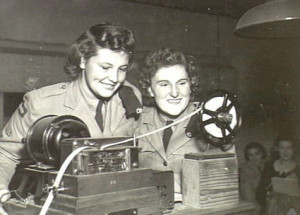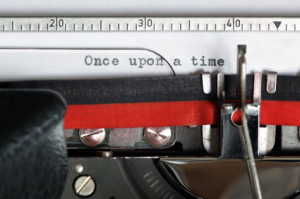 First, as an editor, it makes me a little squirmy to write blog posts about “how” to write. Beyond basic grammar and clarity, the rules of writing, especially in fiction, are a kind of flexible armature and differ according to the author, the genre, and the situation. However, I’ve been seeing something in fiction lately that makes me want to slam my head against the keyboard: telling readers in quite unsubtle terms that the plot is about to take a shocking turn. The device is commonly called telegraphing. Continue reading “Telegraphing Versus Foreshadowing”
First, as an editor, it makes me a little squirmy to write blog posts about “how” to write. Beyond basic grammar and clarity, the rules of writing, especially in fiction, are a kind of flexible armature and differ according to the author, the genre, and the situation. However, I’ve been seeing something in fiction lately that makes me want to slam my head against the keyboard: telling readers in quite unsubtle terms that the plot is about to take a shocking turn. The device is commonly called telegraphing. Continue reading “Telegraphing Versus Foreshadowing”
Author: Laurie Boris
Use Short Fiction to Help Your Novel Writing
 I don’t know about other novel writers, but something happens to my brain between drafts. It’s tired, but it’s too revved up to stop. The state reminds me of my brief long-distance running career. After a major race, lying around “resting” was anything but restful. My body preferred short jogs for a few days, to recover and refresh for the next goal. So when I was going a little stir-crazy waiting to begin the second draft of one of my novels, a friend suggested I try writing a few short stories to keep myself out of trouble. I’ve always found the form intimidating—novel writing gives me the luxury to delve deep into characters and story, and many of my attempts earned me the same response from critique groups: “That sounds like the beginning of a novel.” Sigh. Also, when the subject comes up among writers, you always hear examples of such-and-such author who is better at one length than another. Continue reading “Use Short Fiction to Help Your Novel Writing”
I don’t know about other novel writers, but something happens to my brain between drafts. It’s tired, but it’s too revved up to stop. The state reminds me of my brief long-distance running career. After a major race, lying around “resting” was anything but restful. My body preferred short jogs for a few days, to recover and refresh for the next goal. So when I was going a little stir-crazy waiting to begin the second draft of one of my novels, a friend suggested I try writing a few short stories to keep myself out of trouble. I’ve always found the form intimidating—novel writing gives me the luxury to delve deep into characters and story, and many of my attempts earned me the same response from critique groups: “That sounds like the beginning of a novel.” Sigh. Also, when the subject comes up among writers, you always hear examples of such-and-such author who is better at one length than another. Continue reading “Use Short Fiction to Help Your Novel Writing”
Promoting your book? Read this first.
 We’ve written plenty about the moving parts that need to fall into place when you launch your book. If you think that’s a challenge, wait until you plan a promotion, especially a major one with multiple books or an event that involves multiple authors. Here are some things you’ll want to check out before you promote your book. Continue reading “Promoting your book? Read this first.”
We’ve written plenty about the moving parts that need to fall into place when you launch your book. If you think that’s a challenge, wait until you plan a promotion, especially a major one with multiple books or an event that involves multiple authors. Here are some things you’ll want to check out before you promote your book. Continue reading “Promoting your book? Read this first.”
Book Fact Checking: Who is Responsible?
 I used to assume that the books I read, especially nonfiction, especially those from big-name publishers in New York, had been fact-checked down to the type of boots the hikers were wearing, what brand of vodka the Serbian operative ordered at the bar, and the hotel where the narrator met the contact who broke the story open. But several sources indicate that most publishers do NOT routinely fact-check authors’ manuscripts. And that it has NEVER been a standard practice of book publishing, the way it has been in magazines and newspapers. Continue reading “Book Fact Checking: Who is Responsible?”
I used to assume that the books I read, especially nonfiction, especially those from big-name publishers in New York, had been fact-checked down to the type of boots the hikers were wearing, what brand of vodka the Serbian operative ordered at the bar, and the hotel where the narrator met the contact who broke the story open. But several sources indicate that most publishers do NOT routinely fact-check authors’ manuscripts. And that it has NEVER been a standard practice of book publishing, the way it has been in magazines and newspapers. Continue reading “Book Fact Checking: Who is Responsible?”
